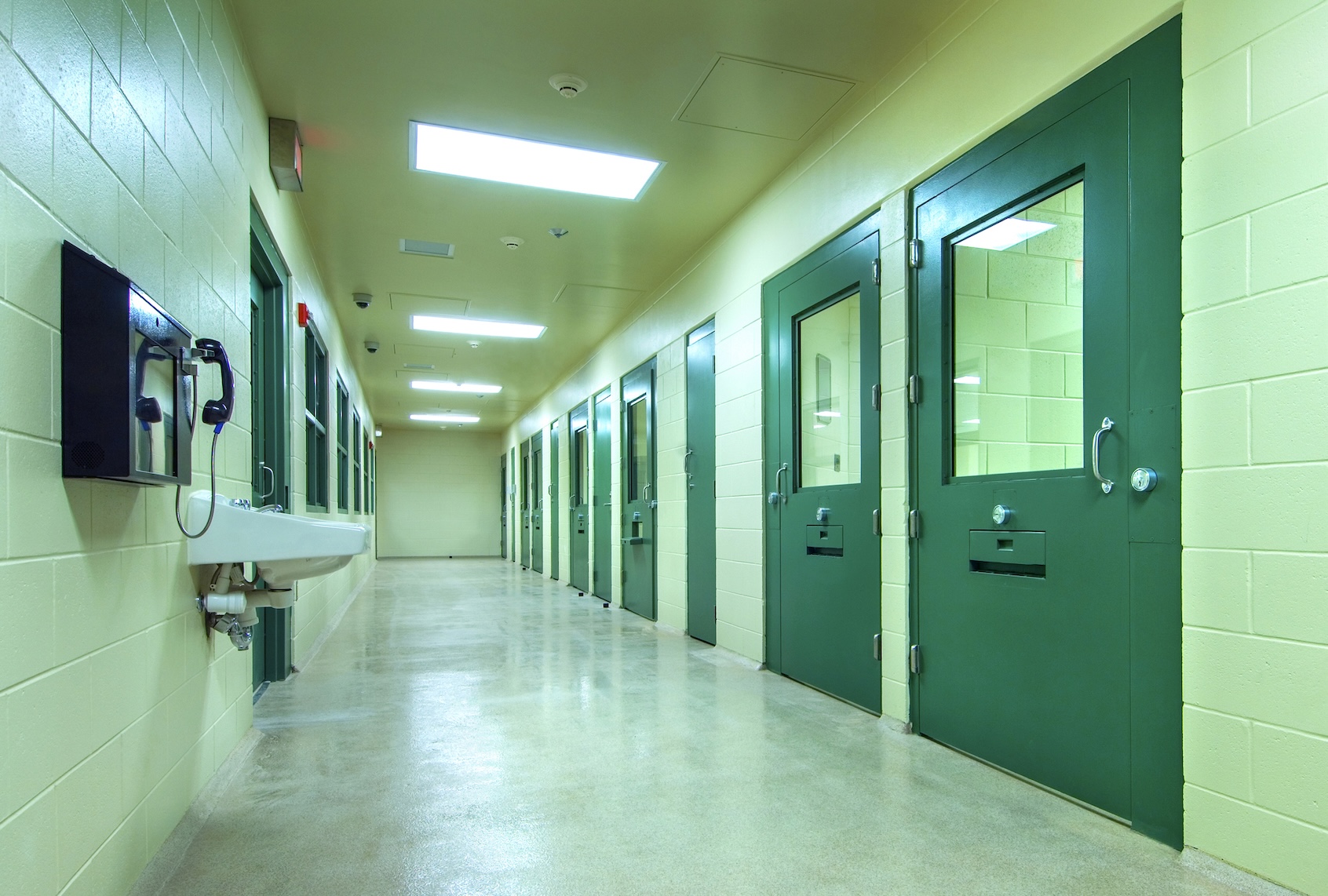A federal grand jury refused to indict a man who threw a sandwich at a federal officer, and grand jurors refused three times to indict a woman accused of assaulting an FBI agent.
President Donald Trump’s surge of federal law enforcement on the streets of D.C. is meeting resistance in the city’s federal courthouse, where magistrate judges have admonished prosecutors for violating defendants’ rights and court rules, and grand jurors have repeatedly refused to issue indictments.
On Tuesday, a federal grand jury refused to indict a former Justice Department employee who threw a sandwich at a federal law enforcement agent in an incident this month that went viral on social media, according to two people with knowledge of the case who spoke on the condition of anonymity because they weren’t authorized to discuss it publicly. Prosecutors had sought to charge Sean Charles Dunn with a felony count of assaulting, resisting or impeding a federal officer.
Trump declared a crime emergency this month, giving federal law enforcement agencies and National Guard members unprecedented authority to patrol the nation’s capital, while also enlisting the District’s 3,100-member police force to assist with immigration enforcement. More than 1,000 arrests have followed, according to the White House. Meanwhile, D.C.’s top prosecutor, Jeanine Pirro, ordered her staff to file the stiffest possible charges in every case.
But there are emerging signs that not all of the arrests will stand up to scrutiny in court.
Before prosecutors failed to indict Dunn, a grand jury on three separate occasions this month refused to indict a D.C. woman who was accused of assaulting an FBI agent, another extraordinary rejection of the prosecution’s case. Days later, a federal magistrate judge said an arrest in Northeast Washington was preceded by the “most illegal search I’ve seen in my life” and described another arrest as lacking “basic human dignity.”
While judges are known to criticize prosecutors from time to time, grand jurors only in rare cases refuse to issue an indictment, which requires them to find only probable cause that a crime was committed, the lowest evidentiary bar in criminal cases. Instances of failed indictments have begun to crop up more since Trump took office this year. Grand jurors in Los Angeles have rejected indictments of people who were arrested for protesting the administration’s immigration enforcement actions, according to the Los Angeles Times.
The July 22 scuffle at issue in D.C. federal court occurred weeks before Trump’s law enforcement order, but the grand jurors were presented with the case this month just as federal agents were descending on Washington.
Prosecutors alleged that Sydney Reid was obstructing and recording agents from the FBI and U.S. Immigration and Customs Enforcement as they attempted to arrest a gang member being released from the D.C. jail who was slated for deportation. An FBI agent scraped her hand against a wall amid the fracas, and prosecutors planned to charge Reid with assaulting, resisting or impeding a federal officer, a felony offense punishable by up to eight years in prison.
Under the Fifth Amendment, however, charges that carry potential penalties of more than a year in prison must be approved by a grand jury. At least 12 members must vote to authorize an indictment. After striking out with the D.C. grand jury, prosecutors dropped the effort to charge Reid with a felony and instead filed a misdemeanor charge that does not require grand jury approval. The maximum penalty for the misdemeanor is one year in jail.
“After Ms. Reid was wrongfully arrested, the ICE agent told her, ‘You should have just stayed home and minded your business,’” Reid’s public defenders, Tezira Abe and Eugene Ohm, said in a statement. “As a United States citizen and a compassionate person, caring about fellow D.C. residents getting snatched off the streets by ICE agents is her business and should be of concern to all human beings.”
They added: “The U.S. attorney can try to concoct crimes to quiet the people but in our criminal justice system, the citizens have the last word. We are anxious to present the misdemeanor case to a jury and to quickly clear Ms. Reid’s name.”
Several recent cases, including Dunn’s, have involved the same felony statute that prosecutors tried to apply to Reid’s case.
Pirro declined to speculate about how juries in D.C., where 90 percent of voters cast ballots for Trump’s opponent in the 2024 presidential race, might respond to criminal cases as the federal crackdown continues.
“The only thing that I can say is we are prosecutors. We are the tip of the spear. We are the ones who take these cases into court, and the burden is on us to prove these cases, and we welcome that burden — beyond a reasonable doubt,” Pirro said at a news conference Tuesday. “Sometimes a jury will buy it and sometimes they won’t. So be it. That’s the way the process works.”
A spokesman for Pirro did not say whether federal prosecutors would try to present the Dunn case to a grand jury a second time. The spokesman, Timothy Lauer, alleged that a government lawyer had violated a court rule requiring confidentiality in grand jury proceedings by disclosing the decision not to indict Dunn. The grand jury’s move in that case was first reported by the New York Times. Dunn’s attorney, Sabrina Shroff, declined to comment.
U.S. Magistrate Judge G. Michael Harvey said at a hearing this month that prosecutors should have promptly notified the court about the grand jury’s decision not to indict Reid but that they held off for days, violating a court rule. “I’ve taken up that issue with the U.S. attorney’s office,” Harvey said last week.
But the most pointed criticisms of Trump’s law enforcement surge have come from Magistrate Judge Zia M. Faruqui, who has castigated law enforcement officials for wearing masks while tackling and arresting a Venezuelan national who worked as a food-delivery driver, for disobeying an order the judge issued this week to release a woman from the D.C. jail, and for arresting and jailing a 37-year-old because “he was a Black man going into Trader Joe’s.”
“I’d say we live in a surreal world right now,” Faruqui said at a court hearing for Christian Enrique Carías Torres, who was taken down by masked federal agents as he exited a Bluestone Lane coffee shop with a delivery order, an arrest that was captured on video by a Washington Post reporter.
“This is not consistent with what I understand the United States of America to be,” the judge told Carías Torres. “You should be treated with basic human dignity. We don’t have a secret police.”
Pirro’s office said in a court filing that Carías Torres ran after officers approached him, struggled as he was being taken down and tried to flee from a police vehicle after being handcuffed, adding that he had missed his immigration court hearings since entering the country in 2023.
Violent crime is down 27 percent so far this year compared with the same period in 2024, according to D.C. police data, and has declined 51 percent when measuring the year-over-year period since Trump issued his order Aug. 11.
The president has painted a portrait of “crime, bloodshed, bedlam and squalor” in the District, blaming years of passive policing by local authorities and lenient criminal justice policies from Democratic officials.
“But now they are allowed to do whatever the hell they want,” Trump said of D.C. police as he announced his moves. He said criminals in the city are rough and tough, “but we’re rougher and tougher.”
Carías Torres was charged with assaulting, resisting or impeding federal officers, just as Dunn and Reid had been, after an officer injured his head while helping take him to the ground. Faruqui ordered that Carías Torres be released pending trial, acknowledging that ICE would have an opportunity to take him into custody to enforce a removal order issued by an immigration court last year.
In another case, federal prosecutors charged Kristal Rios Esquivel with a felony violation of the same statute, which makes it illegal to assault federal officers. Her alleged offense started when she walked through a door that was marked “staff only” at the National Zoo’s bird house, tripping an alarm. As National Zoo Park Police officers arrested her for unlawful entry, Rios Esquivel spat on two of them and kicked one, prosecutors alleged. Her attorney has criticized the arrest as an instance of overpolicing.
Rios Esquivel was held for five days in the D.C. jail before making her initial appearance Monday in Faruqui’s courtroom, which Faruqui said was bad enough. The judge ordered Rios Esquivel released pending trial, but the D.C. Department of Corrections did not free her the same day. Faruqui threatened to impose sanctions in a scathing order issued Tuesday that said officials had subjected Rios Esquivel to illegal detention, and she was released.
“What is especially troubling is that this is not even the first time in the past four months that the Court has encountered this same problem of false imprisonment,” Faruqui wrote, citing another case from April.
At yet another court hearing scrutinizing police tactics in D.C., Faruqui reprimanded federal prosecutors this week for charging Torez Riley with illegally possessing firearms. The judge found that D.C. police officers, who were on patrol with federal agents, violated Riley’s privacy rights by searching his bag, where they found two guns. Riley had previously been convicted of weapons offenses, prosecutors said.
Police said in court documents that Riley’s bag had been searched in part because it appeared to contain something heavy. But that observation was not enough to show probable cause that Riley had committed a crime, the court found.
It was “without a doubt, the most illegal search I’ve seen in my life,” said Faruqui, a former D.C. federal prosecutor, adding that Riley had been jailed and kept away from his three children and pregnant wife for a week because “he was a Black man going into Trader Joe’s.”
Pirro’s office then filed court papers to dismiss the case, and the judge ordered Riley released from a D.C. jail facility.
A spokesman for Pirro said that as soon as she “was shown the body-worn camera footage on Friday, she ordered the dismissal of the charges.” The motion to dismiss was filed Monday.
In response to Faruqui’s criticisms, Pirro said in a statement: “This judge has a long history of bending over backwards to release dangerous felons in possession of firearms and on frequent occasions he has downplayed the seriousness of felons who possess illegal firearms and the danger they pose to our community.”
But Faruqui also admonished Riley over his firearm possession. “You will die, you will kill somebody, or you will end up in jail,” the judge said.
Riley is set to face consequences in Maryland, where Faruqui said authorities would use what they learned in the “blatantly illegal” D.C. search to show he violated his probation in an earlier gun possession case. A bench warrant was issued Monday over the probation violation, according to records from Prince George’s County Circuit Court.
Riley’s wife, Crashawna Williams, said she took a week off from the beauty classes she’s enrolled in to deal with her husband’s case while taking care of their boys, ages 3, 8 and 12.
“I feel like he shouldn’t have been arrested in the first place,” Williams said. But, she added, what could they do?
https://www.washingtonpost.com/dc-md-va/2025/08/27/trump-crime-surge-court-cases



